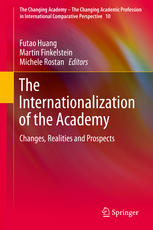

Most ebook files are in PDF format, so you can easily read them using various software such as Foxit Reader or directly on the Google Chrome browser.
Some ebook files are released by publishers in other formats such as .awz, .mobi, .epub, .fb2, etc. You may need to install specific software to read these formats on mobile/PC, such as Calibre.
Please read the tutorial at this link: https://ebookbell.com/faq
We offer FREE conversion to the popular formats you request; however, this may take some time. Therefore, right after payment, please email us, and we will try to provide the service as quickly as possible.
For some exceptional file formats or broken links (if any), please refrain from opening any disputes. Instead, email us first, and we will try to assist within a maximum of 6 hours.
EbookBell Team

4.4
12 reviewsThis volume provides a nuanced empirical assessment of the extent to which the academic profession is internationalized at the beginning of the 21st century. It indicates which are the most internationalized academic activities, and focuses on specific topics such as physical mobility for study or professional purposes, teaching abroad or in another language, research collaboration with foreign colleagues, and publication and dissemination outside one’s native country or in another language. It places the main theme in the wider context of the history of higher education’s internationalization. It provides explanations on what drives and deters academics from international activity, and documents some of the consequences that internationalization has on academic work and productivity.
This study is based on a survey of 25,000 academics working at higher education institutions in 18 countries and Hong Kong on five continents. Comparing data from the 1992 Carnegie International study to the 2007 CAP survey, relying on respondents’ perceptions of change, and comparing different academic generations, it offers valuable insights on changes in the internationalization of the academy.